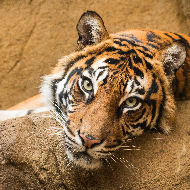
Zoos and aquariums affected by the pandemic to recieve £100m funding
The £100 million Zoo Animals Fund, announced on 27 June, is now open for applications. This fund will provide financial support for zoos and aquariums that have experienced a drop in income as a result of the coronavirus pandemic.
Starting today, licensed zoos and aquariums will be able to apply for government grants of up to £730,000 to help them provide care for their animals and carry out essential maintenance. The grants can be used to cover costs for veterinary care, medicines, and animal feed, as well as costs for staff providing animal care directly.
According to a statement from the government: “Grants will be awarded on the basis of need where zoos face a shortfall despite doing everything they can to reduce their costs and raise income.” Funding will also be awarded to zoos that need to downsize or close, to support rehoming costs.
Animal welfare minister Lord Goldsmith said: “It has been great to see zoos and aquariums welcoming people back again over the past six weeks, but I know what a challenging period this remains and hope the opening of the fund provides some much-needed relief.
“We’ll continue to work closely with the zoo community over the coming months and remain absolutely committed to ensuring that zoos and aquariums have the support they need to provide the best possible care for their animals.”
Chief secretary to the treasury Steve Barclay said: “We remain committed to giving [zoos and aquariums] the continuing support they need to look after their animals over this winter, which is why this fund, open for applications from today, will help zoos maintain their world-leading animal welfare standards.”
Applications for the Zoo Animals Fund will be accepted until 16 November 2020 and the fund itself will run until the end of March 2021.
Information on how to apply can be found here.



 The Greyhound Board of Great Britain has published new vaccination guidance, with all greyhounds registered from 1 January, 2027 required to have the L4 leptospirosis vaccination, rather than L2.
The Greyhound Board of Great Britain has published new vaccination guidance, with all greyhounds registered from 1 January, 2027 required to have the L4 leptospirosis vaccination, rather than L2.